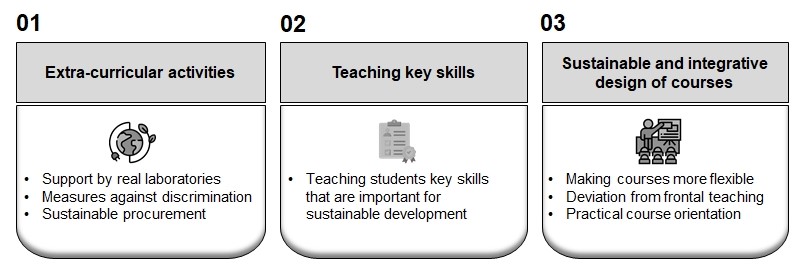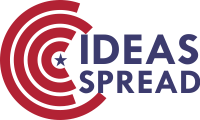How Can Higher Education Institutions Contribute to Achieving the Sustainable Development Goals (SDGs)? Actions, Monitoring and Reporting
Abstract
The principles of sustainability are becoming increasingly relevant. Against this back-ground, the UN developed the 17 SDGs. HEI teaching plays a key role in achieving the SDGs, as graduates should be equipped with skills that enable them to tackle the large and complex sustainability problems. However, monitoring and reporting in HEI is currently inadequate and needs to be improved accordingly. This article presents three areas of HEI teaching that can be used to promote sustainability skills among students. Subsequently, monitoring and reporting at HEIs is analyzed in order to compare different frameworks for monitoring and reporting for being applied to HEIs.
References
Bokhari, A. A. (2017). Universities’ social responsibility (USR) and sustainable development: A conceptual framework. International Journal of Economics and Management Studies, 4(12), 8–16.
Brody, S. D., & Ryu, H.-C. (2006). Measuring the educational impacts of a graduate course on sustainable development. Environmental Education Research, 12(2). https://doi.org/10.1080/13504620600688955
Bulo, J. G., & Sanchez, M. G. (2014). Sources of stress among college students. CVCITC Research Journal, 1(1), 16–25.
Castellanos, M., & Cole, D. (2015). Disentangling the impact of diversity courses: Examining the influence of diversity course content on students' civic engagement. Journal of College Student Development, 56(8), 794–811.
Castelli Florino Pilz, E., Carteron, J.-C., Dechamps, A., Brewer, A., Antunes, N., & Schulz, P. (2022). Sulitest Report.
de Haan, G. (2006). The BLK '21' program in Germany: A 'Gestaltungskompetenz'-based model for Education for Sustainable Development. Environmental Education Research, 12(1), 19–32. https://doi.org/10.1080/13504620500526362
de Kraker, J., Dlouhá, J., Henderson, L., & Kapitulčinová, D. (2017). The European Virtual Seminar on Sustainable Development as an opportunity for staff ESD competence development within university curricula. International Journal of Sustainability in Higher Education, 18(5), 758–771. https://doi.org/10.1108/IJSHE-03-2016-0040
Delgado-Ceballos, J., Ortiz-De-Mandojana, N., Antolín-López, R., & Montiel, I. (2023). Connecting the sustainable development goals to firm-level sustainability and ESG factors: The need for double materiality. BRQ Business Research Quarterly, 26(1), 2–10. https://doi.org/10.1177/23409444221140919
Dembski, N., Skroblin, J.-H., & Nölting, B. (2021). Nachhaltigkeitstransfer in der Hochschullehre – konzeptionelle Entwicklung und Perspektiven für transdisziplinäre Lehr-Lern-Formate. In Boos, A., van den Eeden, M., & Viere, M. (Eds.), CSR und Hochschullehre (pp. 129–140). Springer Gabler, Berlin, Heidelberg.
Dixon, S. K., & Kurpius, S. E. R. (2008). Depression and college stress among university undergraduates: Do mattering and self-esteem make a difference? Journal of College Student Development, 49(5), 412–424. https://doi.org/10.1353/csd.0.0024
Draeger, J., & Müller-Eiselt, R. (2015). Die digitale Bildungsrevolution der radikale Wandel des Lernens und wie wir ihn gestalten können. Deutsche Verlags-Anstalt GmbH.
Edwards, D. B., Sustarsic, M., Chiba, M., McCormick, M., Goo, M., & Perriton, S. (2020). Achieving and monitoring education for sustainable development and global citizenship: A systematic review of the literature. Sustainability, 12(4), 1383. https://doi.org/10.3390/su12041383
Ferrer-Balas, D., Adachi, J., Banas, S., Davidson, C. I., Hoshikoshi, A., Mishra, A., & Motodoa, Y. (2008). An international comparative analysis of sustainability transformation across seven universities. International Journal of Sustainability in Higher Education, 9(3), 295–316. https://doi.org/10.1108/14676370810885907
Glasser, H., & Hirsh, J. (2016). Towards the development of robust learning for sustainability core competences. Sustainability: The Journal of Record, 9(3), 121–134. https://doi.org/10.1089/sus.2016.29054.hg
Hák, T., Janoušková, S., & Moldan, B. (2016). Sustainable development goals: A need for relevant indicators. Ecological Indicators, 60, 565–573. https://doi.org/10.1016/j.ecolind.2015.08.003
Higher Education Forum on Digitalization. (2016). The Digital Turn - Higher Education in the Digital Age. Working Paper No. 27.


This work is licensed under a Creative Commons Attribution 4.0 International License.
Copyright for this article is retained by the author(s), with first publication rights granted to the journal.
This is an open-access article distributed under the terms and conditions of the Creative Commons Attribution license (http://creativecommons.org/licenses/by/4.0/).
























